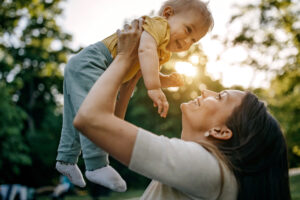Why Did My IVF Cycle Fail? What Should I Do Next?
So you had your first IVF cycle, and it failed. You are probably feeling a lot of emotions—disappointment, sadness, maybe even anger that you didn’t get the result you wanted from fertility treatment. The first measure to take is to let yourself grieve a bit. It’s okay to feel disappointed and sad. Give yourself a week or so to get through this before you decide what to do next.

Many women who have had an failed IVF cycle will be successful on a second or even a third cycle. Not all the issues that influence IVF success can be corrected, but some can be addressed to help make the next cycle more likely to result in a pregnancy.
Age
Age of the female partner is the most important factor in predicting IVF success. As women age, their eggs get older, fewer eggs are produced and the quality of the eggs declines. This begins to happen when you are in your thirties, and the decline accelerates once you reach age 37. The chance that an IVF cycle using fresh non-donor eggs will result in a live birth is, on average, almost 32 percent for a 35 year old woman, but only 12 percent for a 41 or 42 year old woman, according to the U.S. government’s 2011 CDC report.
Embryo Quality
Another reason IVF cycles fail is poor embryo quality. Usually the embryos fail to implant and grow because they have chromosomal or genetic defects. Again, older eggs are more likely to result in poor embryo quality.
Ovarian Response
The ovaries respond to the fertility medications with production of multiple eggs, which is critical to the chances of conceiving with IVF. In some cases, women do not produce multiple eggs because their ovaries have fewer numbers of eggs in reserve than expected. You’re more likely to have a poor response if you are over 37 and/or have high FSH (follicle stimulating hormone) or low AMH (antimullerian hormone) levels.
Steps You Can Take Before the Next Cycle
Your fertility specialist will review the records of your cycle very carefully before your next visit to possibly learn reasons the cycle failed, including the results of the ovarian stimulation, any issues with egg quality or quantity, embryo development, or transfer of the embryos to your uterus. If there were difficulties with ovarian stimulation or egg quantity, your doctor may consider changing the drugs used in the stimulation process. If there weren’t problems with the eggs or the embryos, you may be successful with a second IVF cycle. If there were problems with embryo implantation and the female partner is older, your doctor may recommend preimplantation genetic screening (PGS) to screen the embryos in your next IVF cycle before implantation. This process requires taking a biopsy from the embryo and testing the cells for their chromosome number. This allows the specialist to choose healthy embryos without the genetic problems which can stop them from growing.
If the eggs and embryos were healthy and no other issues are apparent, you may get the results you want with your second IVF cycle. Ask your doctor to give you an honest appraisal of your chances of getting pregnant and having a healthy baby.
Finally, if you need to, you can alter your lifestyle to improve your chances of succeeding at IVF. Stop smoking, don’t drink alcohol or use drugs, eat a healthy diet, get enough rest—and be kind to yourself and your partner. You’re going through a stressful time, with an exciting goal at the end!
 Many women who have had an failed IVF cycle will be successful on a second or even a third cycle. Not all the issues that influence IVF success can be corrected, but some can be addressed to help make the next cycle more likely to result in a pregnancy.
Many women who have had an failed IVF cycle will be successful on a second or even a third cycle. Not all the issues that influence IVF success can be corrected, but some can be addressed to help make the next cycle more likely to result in a pregnancy.



